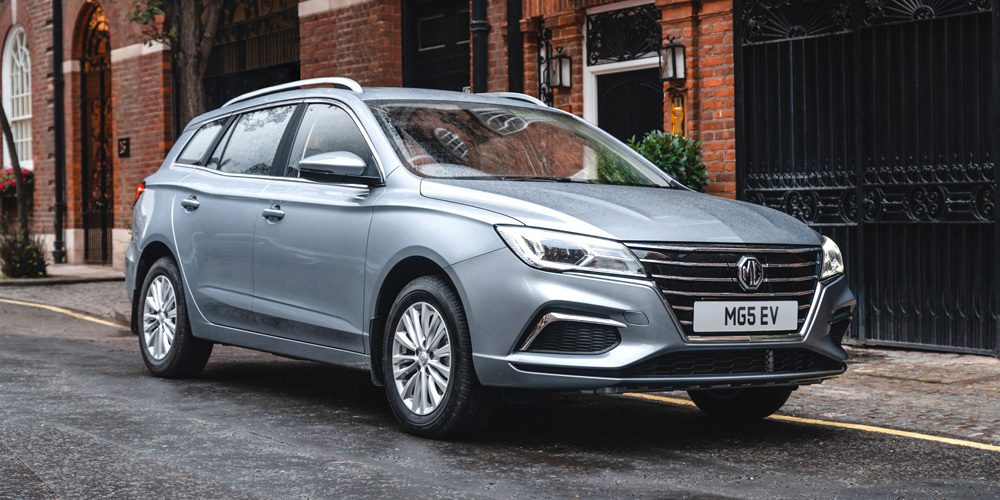Driving an EV for Uber – London is claiming more and more of on-demand drivers’ income through the Congestion Charge and the ULEZ charge. This is why now is the best time to seriously consider making the switch to an electric car. To help you upgrade, rideshare platforms such as Uber, Bolt or Ola have also been incentivising drivers to go electric and even earn more.
But as many drivers still, you might be on the fence about whether an electric PCO car is really worth it. Let’s break it down to a few common misconceptions about what it means to live with an EV, especially as a rideshare driver.
Myth #1 – EV cars are too expensive for Uber
If you want to pay upfront, that might be the case. However, if you consider the bigger context, it’s definitely more affordable to own an electric car:
- Incentives such as the Uber Clean Air EV assistance make it easier to own an electric PCO car with Splend
- A daily saving on the Congestion Charge of £15
- A minimum saving of £30 per week on fuel costs
- Less maintenance: no more oil changes, filters, flywheels, or the entire ignition and exhaust system.
Myth #2 – There aren’t enough charging stations if you drive Uber
Even though most electric car charging is done at home, it’s difficult to do when you live in an apartment building. The good news is that thousands of new EV charging stations are being installed all over London. This means that living with an electric car is getting easier by the day.
How many EV charging points are there in the UK?
According to ZapMap, there are over 42,000 public charge points in the UK across 25,000 locations, with new ones being installed every month. Although not as cost-effective as home charging, it’s still way cheaper than filling up with petrol or diesel.
DID YOU KNOW? Greater London has the most charging points in the UK – 13,500, followed by the South-East with 5,300 and Scotland with 4000.

Myth #3: You have to charge an EV every day for Uber
On average, Uber drivers travel between 100-150 miles per day. Most new electric cars have at least a 160-mile range with a full battery, and several models go 280 miles or more on a single charge.
Unlike traditional cars, EVs thrive in the city. Because of how they’re built, regenerative braking, for example, actually charges the battery, so you can drive more in the city than on a motorway.
Of course, it depends a lot on the make and model, as well as your driving style, but most modern electric cars go more than one full day of Uber driving.
Myth #4 – EV batteries don’t last and they lose their range
EV batteries have proven to be more robust than initially thought. A recent study by Kia found that battery packs installed in the Soul models have lost just over 1% of their total battery capacity on average over three years.
Most electric cars come with a battery warranty of at least 7 years or 100,000 miles, and replacement costs are comparable to that of swapping the clutch on a petrol car.
Myth #5 – EVs aren’t good for Uber in the UK due to the cold weather
During winter days you should estimate losing 5-8% of your electric car’s range. This is similar to what you’d see with a petrol car in winter, as it also consumes significantly more until the engine warms up.
Electric cars also give you a more accurate range prediction, as well as a map of the charging stations nearby, so there’s no risk of suddenly running out of charge while you’re driving Uber.
Myth #6 – EVs take too long to charge for Uber drivers
Home charging is indeed slower and can take up to 10 hours to fully charge a car. The cheapest and most efficient way might be to charge your car overnight.
TIP: For quick charges between Uber trips, you can use a public charging station, which gives you an 80% range in just over half an hour – the same as your smartphone.
Myth #7 – EV cars are slower than petrol cars
EVs don’t have gearboxes, because they can produce maximum torque at all revs. This means instant, rapid acceleration without losing momentum and wasting energy between gear changes.
Most electric cars outperform the equivalent petrol car from 0-60mph easily. Overall, it means you can provide your Uber riders with a smoother trip in an EV.
Myth #8 – EV cars are not safe
When it comes to safety, EVs are reviewed no differently than traditional cars. Whatsmore, Uber doesn’t even allow cars that don’t have a full 5-star NCAP safety rating, including electric cars. So there’s really no argument for EVs being less secure. Models like the MG5 Long Range, or the Volkswagen ID.3 to name a few, have all been reviewed with the highest safety score.
Myth #9 – EVs are worse for the environment than petrol cars
The common argument made against electric cars is that manufacturing and disposing of car batteries harms the planet. Another concern is that generating electricity also has a carbon footprint.
So EVs are not as clean as they’re being advertised. Not 100% harmless in any case.
Electric cars are in fact 5 to 6 times more energy-efficient than internal combustion cars and consume 25% the amount of energy by comparison. This means that the total amount of energy consumed in transport is considerably less than what it is now.

Myth #10 – The power grid won’t be able to sustain charging so many EVs
While the global electric power system is indeed undergoing an unprecedented change, it’s still constantly being developed in parallel.
According to a 2018 study, if 80% of all passenger cars will become electric, there’s going to be a total increase of only 10-15% in electricity consumption. However, this won’t happen immediately, but gradually, and the newly-built capacity will most likely involve more power resources, such as wind or solar power.
About Splend
We enable people to make money by driving. Our vision is a future where every on-demand driver can be successful.
We’re PCO car specialists. Don’t take our word for it—drivers rate us excellent on Trustpilot. We can set you up with a brand-new or new-model car on our Flexi own plan, plus we provide the training and support you need to become an Uber driver that’s more profitable, safer, and fulfilled.
Make an appointment at our London Hub at 393 Edgware Road Cricklewood, London, email us, or say hello on 0333 016 4331


![How to Become a Uber Driver [Complete Guide] | Splend](https://www.splend.co.uk/wp-content/uploads/2020/02/how-to-become-an-uber-driver-in-london-2.jpg)

